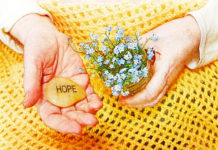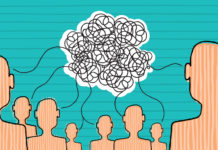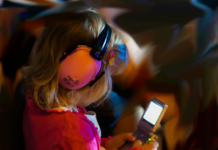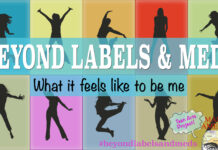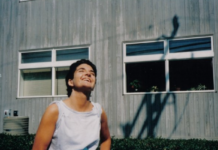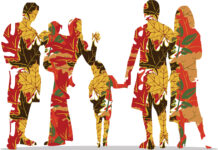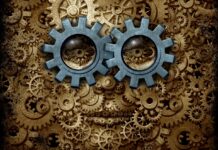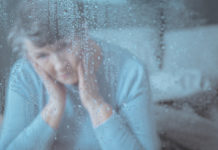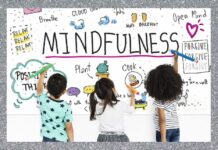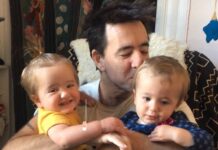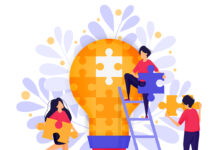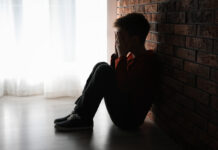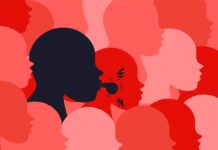Where Can Families Turn for Help?
Watching my son be subjected to continuous harm by the drugs, how can I pretend that it's okay to maintain this abusive system of care? Who will push for accountability? As a mother, I want to share a meaningful connection with my son. I want to witness him happy, healthy and living the life he chooses.
Hearing Voices Network Launches Family & Friends Support Group
One of the HVN's fundamental principles is that "the person having these experiences is in the best position to decide or discover what they mean" and thus each person must "not try to speak for" another. The challenge for a family group will likely be for members to move past speaking about our loved ones to find or imagine the space where we ourselves are liberated.
Giving Caregivers a Platform: Meagan, Mother of Matt
A mom describes her son's descent into the harms of psychiatry—and his way out. "It was really difficult to watch Matt decline. He had given up hope that he could get well."
The Mental Health Crisis of Today’s Youth—The Hidden Culprit Every Parent and Therapist Should...
A therapist argues that achievement culture hurts youth mental health, and parents should focus on their children's inner wisdom.
Emotional Crisis Response: The Peer-Run Respite/Soteria House Approach Compared to the Conventional Approach
The peer respite/Soteria house model responds to emotional crisis with compassion and curiosity, rather than pathologizing.
Suicidality: When Your Feelings Are Too Dangerous
After finding a cop at my door, I learned it wasn’t safe to talk about my feelings of wanting to die. As a result, I spent the better part of the next decade not telling anyone when I was suicidal.
7 Tips to Help a Distracted Child
Simple changes such as keeping a calm home environment, limiting media distractions and enrolling your child in sports will help a child who is inattentive or having problems focusing on his or her school work. They are also useful for any child and can even prevent inattentiveness in an ever-more-distracting world.
Struggling Parents, Burdened Social Services: What We Can Change
Parents encounter many obstacles when trying to secure adequate educational, medical, psychological, and social supports for their children. These “dense bureaucracies” hurt not just families, but everyone.
Call for Teen Art in All Media!
MIA's Family Resources and Arts sections are co-sponsoring an online teen multimedia art exhibition with the theme “Beyond Labels and Meds: What It Feels Like to Be Me.”
Making Mental Health an Ongoing Priority: A Patch Adams Approach
My brother’s sudden death and Mental Health Awareness Month spurred me to spend May making small, very personal efforts to both honor his memory and move the mental health conversation forward.
My Sister Lucy’s Death and Life: Picturing an Alternate Timeline of Recovery
I’ll never forget standing beside my sister Lucy as she was strapped to a gurney during a midnight admission to an E.R. in Cambridge, Mass.
Why My Daughter Died and I Lived
To be a parent of a suicidal child is to be in a terrible position, where you hold in your hands the life most valuable to you and know that any slip of your hands may end that life. In the 1970s, my suicidality was treated nonmedically and I lived. In the 2000s, my daughter Martha’s suicidality was treated medically and she died.
My Lived Experience Helps Others Heal: Working with Families on the Path to Recovery
If one person is struggling, everyone in the family is struggling. Families need support.
Children Are Vulnerable Cogs in the Psychiatric Machine
My guardian decided to seek out “professional” advice about how to diminish my “outbursts.” I was perceived as a problem that needed to be extinguished into a compliant state.
The Year I Lost Everything, Psychiatry Offered Nothing
After a failed suicide attempt following my son's death, New York State incarcerated me in a mental institution for 21 days. The environment was degrading, stultifying, and downright depressing.
Saving Lives or Cementing Stigma? A Review of “Just Like You…”
In my experience, episodes of anxiety and depression dwindle in the face of hope and empowerment, while broken-brain narratives lead to deeper despair.
Collateral Damage: The Negative Impact of Antidepressants on New Zealand Youth
Health and wellbeing in young people are trending down in New Zealand. Are antidepressants to blame?
Mental Health & Our Schools, Part 2
Schools are rolling out programs and services intended to safeguard students’ emotional well-being. They are full of potential—and pitfalls.
Mad Parenting: On Becoming an Unlikely Family Man
I’ve often been told I shouldn’t have kids because I’m “bipolar.” But since my twins’ birth, I’ve been way more stable than I thought I would be, and I’ve found what I’ve always been looking for.
Shedding the Limits of “Severe Mental Illness” Labels
When people seeking help are relegated to “the Other,” how can they ever form a “therapeutic alliance”? Without collaboration, treatment devolves into coercion and oppression. We must change our language and relationships so new narratives can be born.
The Worst Thing: How My Mother’s Death Pushed Me to Overcome OCD
The goal of creating a legacy for my mother required that I go beyond managing my symptoms to confronting my OCD at its roots. I had to fundamentally change my understanding of anxiety.
From Labeled to Healer: A Road Less Traveled
We have let down our children (and ourselves) by losing touch with parental intuition and handing their care over to professionals at the first sign of a problem.
Why Is Child Sexual Abuse So Common in Institutions?
Where ableism and adultism allows disabled children to be seen as unreliable narrators of their own experience, sexual violence in institutions will continue to be pervasive.
Why I Fight for Trauma-Informed Systems
I am not sure what was worse: being abused growing up while my community documented—then ignored—my torment, or being attacked for going public with my story.
No, Dr. Friedman: The Solution to Teen Suicide is Not So Simple
In the largest newspaper in the world this week, one of the largest problems in the world was proposed as having a very simple solution. No, the answer to our suicide crisis among youth is not to encourage more teens to embrace more treatment. It’s to pursue multifaceted answers to a complex, multifaceted problem.

